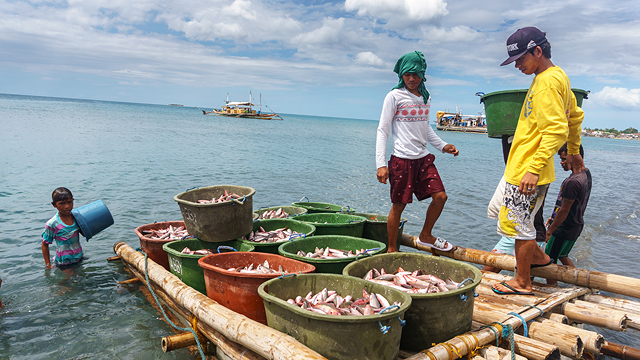
Filipino fishermen will now find it more dangerous in the West Philippine Sea, after China passed a law authorizing its coast guard to use force in asserting their claims, a maritime law expert said, adding it could be considered an "act of war."
The law allows the Chinese Coast Guard to fire at foreign vessels and lacks restrictions prescribed by international maritime law on the use of force, Jay Batongbacal, Director of the Institute for Maritime Affairs and the Law of the Sea at the UP College of Law, told ANC.
"It's like express authorization on the part of the Chinese government for these vessels to fire upon Philippine ships even though it's clearly within our Exclusive Economic Zone, even though it's not doing anything else," he said.
"Message is really that they are strengthening their coast guard and operations. It's an implied warning that other vessels should follow the coast guard whenever they are accosted," said Batongbacal.
China has refused to recognize a 2016 ruling by the United Nations-backed Permanent Court of Arbitration that invalidated its vast claims on the resource-rich waters, also being claimed in whole or in part by the Philippines, Brunei, Indonesia, Malaysia, Taiwan, and Vietnam.
Also read:
The West Philippine Sea Is Officially Ours, and China Is Furious
The 5-Minute Guide to the West Philippine Sea Dispute: What You Need to Know
What Can the Philippines Do?
Chinese authorities also recently accosted a Filipino fishing vessel on its way to Scarborough Shoal (Panatag Shoal), a fishing area off Zambales in Luzon, where China has built artificial islands.
"The Philippines and all the surrounding Southeast Asian states also have to send a clear response, and that is, despite China's legislation it is not going to be permitted to use force to enforce its excessive claims in the waters of these other countries," Batongbacal said.
"Any use of force should be considered a hostile act, or an act of aggression. That could be the clear message," he said.
President Rodrigo Duterte has refused to raise Manila's legal victory, which was pursued by his predecessor, Benigno "Noynoy" Aquino III. Instead, he sought closer economic and political ties with Beijing as he pivoted foreign policy away from Washington.
Hey, Spotters! Check us out on Viber to join our Community and subscribe to our Chatbot.
Source: Spot PH
No comments:
Post a Comment